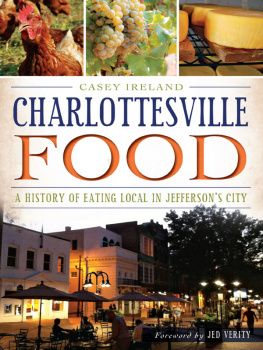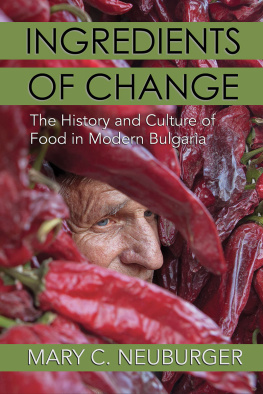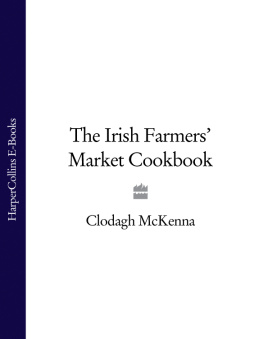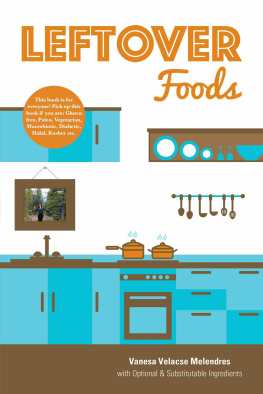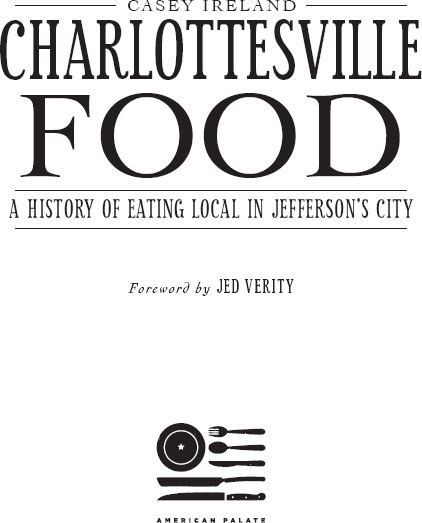
Published by American Palate
A Division of The History Press
Charleston, SC 29403
www.historypress.net
Copyright 2014 by Casey Ireland
All rights reserved
First published 2014
e-book edition 2014
ISBN 978.1.62584.165.0
Library of Congress Cataloging-in-Publication Data
Ireland, Casey, author.
Charlottesville food : a history of eating local in Jeffersons city / Casey Ireland.
pages cm
Summary: From the early days of ThomasJeffersons Garden Book at Monticelloto the hustle and bustle of the modern City Market on Water Street, Charlottesville has an illustrious culinary history. The citys cuisine ischaracterized by a delight in locally raised ingredients. The locavorementality appears at all levels of Charlottesvilles food industry, includingthe nationally acknowledged methods of Joel Salatins Polyface Farms, thesourcing of local pork for Chipotles Charlottesville location and theaccessibility of regional ingredients everywhere from Whole Foods Market toonline favorite Relay Foods. Author and food enthusiast Casey Ireland explores how Charlottesvilles residents have created a food culture that is all their own--Provided by publisher.
Summary: A history of food culture past and present in Charlottesville, VA--Provided by publisher.
Includes bibliographical references (pages ).
print edition ISBN 978-1-62619-027-6 (paperback)
1. Local food--Virginia--Charlottsville--History. 2. Cooking--Virginia--Charlottsville--History. 3. Charlottsville (Va.)--Social life and customs. I. Title.
TX360.U63C435 2014
641.5975548--dc23
2013050304
Notice: The information in this book is true and complete to the best of our knowledge. It is offered without guarantee on the part of the author or The History Press. The author and The History Press disclaim all liability in connection with the use of this book.
All rights reserved. No part of this book may be reproduced or transmitted in any form whatsoever without prior written permission from the publisher except in the case of brief quotations embodied in critical articles and reviews.
For my parents and sister, lovers of good meals and good books.
Contents
Foreword
A few months ago, I went to Portland, Maine, to visit family and friends. Over truffled mac and cheese with a massive glistening pillow of lobster meat on top, my cousin asked me if the farm-to-table movement was as strong in Charlottesville as it was in Portland. I nodded vigorously and told her that Forbes magazine had referred to us as the locavore capital of the world and that weve also long enjoyed the honor of having more restaurants per capita than anywhere else in the country. At this, the locals at the table let out a collective guffaw. Portland, they said, is well known to have the most restaurants per capita in the country, and the local food movement is not really even a movement there because its the way its always been. We all took sips of our locally produced pale ales and cabernets and smiled tight smiles at each other.
Reflecting on this later, I decided that both of us must be wrong. Surely there are more restaurants per capita in New York City than in either Portland or Charlottesville. And what are the chances that this local food craze sweeping the nation started in one of our small towns? Some quick Googling revealed that the current title-holder of most restaurants per capita is actually Juneau, Alaska, and that there is no consensus whatsoever about the origins of this modern incarnation of the local food movement (though Michael Pollan and Joel Salatin are surely founding fathers, with the latter giving central Virginia an edge over Portland, if I may be so bold).
So why are we sparring over mac and cheese, trying to claim some small victory in this local food arena for our little towns?
Until recently, my wife and I ran a restaurant reviews and food news blog in Charlottesville. We had hoped it would become a place for people to have conversations about food, and it did, but the character of those conversations was more often belligerent than convivial. How can you possibly think this restaurant is good/bad? How can you claim to know anything about food given that youve never been professionally trained? And, most pertinently, why would you patronize an establishment that makes no effort to source its ingredients locally?
It was this last question that hinted at an answer to the earlier question. Any issues of pragmatism wrapped up in the local food movementfresher produce, support for the local economy, reduction of energy consumption by shortening distances between producers and consumershave been moralized in the extreme, glorifying those who source and eat their ingredients locally and vilifying the rest.
To an extent, this is not surprising. Energy and the economy are powerfully charged, highly politicized issues. But it goes deeper than that. Local has come to be a synonym for other values as well. Healthy is one. Were worried that food corporations are more concerned about the bottom line than our bodies, piping in all kinds of chemical preservatives and flavor enhancers to make sure we buy what they sell, such that it feels wiser to eat a local biscuit with local bacon than a corporate salad with foreign fruit. Is it actually healthier to do so? Maybe, maybe not. In the paraphrased words of one of our readers, If Im going to go prematurely, Ill take a heart attack while eating a local breakfast sandwich over cancer from a fast-food salad any day of the week!
This points to another modern synonym of local, which is trustworthy. Local farmers could be engaging in all kinds of sadistic, immoral practices just around the bend, but we trust that theyre not. Theyre our neighbors and friends. Surely theyre looking out for us more than the faceless executives just trying to make a buck. Right?
Slow is another one. Many people talk about the Slow Food movement and the local food movement in the same breath. In this age of fast foodand fast casualand instantaneous communication with people around the world, we are feeling agile but fatigued, connected but disconnected. Local food promises old(er)-fashioned techniques, fewer ingredients, a simpler and purer experience, with that guy over there who has some good chickens and that family over there with all the goat cheeseproducing goats. Pull up a chair, my friend, and let me get you a plate of food. Well drink a beer from the brewery right around the corner and talk about old times.
Putting aside issues of whether fast-food salads really are carcinogenic, whether local farmers really care less about making money than corporate execs and all the other complex dynamics at play here, we can see in the good-natured debate between Portland locals and Charlottesville locals a contraction of the ever-expanding universe. We have now collectively realized the insane dream of being able to video chat with someone in the Himalayas in real-time, both of us drinking a Coke and eating chicken McNuggets. The spectacle of brand colonialismwalking off a rickety plane in the middle of nowhere in a far-off country to see a Coke umbrellahas lost its luster, if it ever had any. The thing that is special about us is the thing you cant get anywhere else. The people, the food and drink, the history of this place and the experiences to be had right here and now. These are the knowable things, the raw materials of our very being, and they cant be bought or sold anywhere else.
Jed Verity
Charlottesville, Virginia
November 2013
Acknowledgements
This book is the result of the encouragement and opportunities given to me by Jed Verity and Erin Malec of Mas to Millers. Their guidance, experience and general know-how has been an indispensable part of the book-writing process. Greg and Debbie Ireland, Chelsea Ireland and Kevin Haney have given me incredible supporttheyve functioned as sounding boards, proofreaders, marketers and cheerleaders. Kevins photography, eye for detail and unwavering dedication have been essential to the completion of this work and my sanity as an author.
Next page
